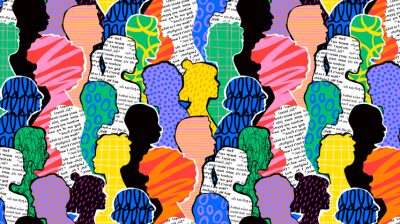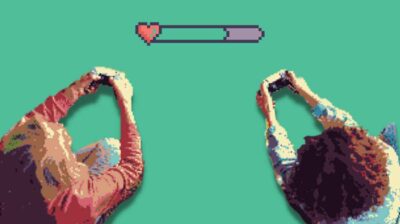What is mental health recovery?
Mental health recovery isn’t always straightforward, but with the right support you can heal, grow and live the life you want to live.

Mental illness comes in many forms. There is a wide range of mental health conditions out there, each with its own combination of potential symptoms. Despite their differences, one thing that all forms of mental illness have in common is their ability to hold you back from living the life you want to live. If you are experiencing a period of mental illness, know that mental health recovery is possible with the right support.
Recovery from a mental health issue is a journey. It takes time, the path isn’t always straightforward, you learn as you go, and your destination may not be what you expect. In the same way that no two people will have exactly the same experience of mental illness, recovery is also personal and unique to the individual.
What is Mental Health Recovery?
When you hear the term ‘mental health recovery’, you might think of easing symptoms, improving functioning, and returning to ‘normal’. These things are all important parts of a type of recovery called clinical recovery. Clinical recovery is an idea that mental health professionals use to help understand if mental health treatments are working and to decide when a treatment is complete. Clinical recovery is a useful idea, but it doesn’t capture the whole picture when it comes to recovering from a mental health issue.
Recovery is a personal thing, so there is no single definition that would explain what recovery means to everyone. Recovery is not just about getting rid of the symptoms of a mental health condition or trying to get your life back to what it was like before. Instead, it is about finding ways to manage the challenges that come with mental health difficulties so that you can live the life you want to live. Many people who consider themselves to be recovered from a mental health issue still have mental health symptoms from time to time or still go through some periods of difficulty. No two people will define their personal recovery in exactly the same way. For many, recovery can mean learning to better cope with mental health symptoms, rather than those symptoms necessarily going away. The most powerful definition of recovery is the one you find for yourself.
Finding what recovery means to you takes time. Some people call this process a recovery journey. Every recovery journey is unique, but along the way you might spend time reflecting on your values and attitudes, building your self-image, setting goals and finding hope for your future. The process of recovery will help you learn more about yourself, discover your strengths, figure out what’s most important to you and what kind of life you want to live. Recovery isn’t linear, meaning it doesn’t just have a beginning, middle and end. Most people will feel like they are going one step forward and two steps back. Every recovery journey has ups and downs, but with the right support system, recovery is achievable.
What are the key ingredients of mental health recovery?
While no two recovery journeys are identical, they often have a number of key factors in common that help the individual heal and live the life they want to live. Researchers who study recovery found 5 things that many people talk about when they’re sharing their personal recovery story.
Connectedness
Connectedness is about having positive connections with people in your life. For many people, the connections they have with others help them heal. Some people find support from friends and family. Others find support in their communities. Connection can also come from therapeutic relationships with mental health professionals.
Hope
Hope plays such an important role in mental health recovery. When you’re going through a period of poor mental health, it can be difficult to believe that things can get better. Finding hope for the future can help you take the first step on a recovery journey. When you believe that things can change for the better, and you believe in your ability to make change, this can help you keep moving forward when you have setbacks in your journey.
Identity
Mental health issues can take a toll on how you view yourself. Going through a tough time can lower your self-esteem, make you more self-critical, make you doubt your abilities, and make it harder for you to see your strengths. Our society can often stigmatise mental illness, which can also have an impact on self-image. Recovering from mental health issues often involves rebuilding a positive sense of self. You might change how you view yourself and develop a new appreciation for your strengths on your recovery journey. For some people, their recovery will involve unlearning some of their assumptions about what it means to have a mental health issue.
Meaning
For many people, an important part of their recovery journey involves finding meaning and purpose in their life. People find meaning in lots of different places. Some people find meaning in their relationships with friends or family. Some find meaning in their work or hobbies. Some draw a sense of meaning from within themselves or from the world around them. Others draw meaning from their faith or beliefs. There are no wrong places to find meaning in life. If it is meaningful to you, then it is important and valuable.
Empowerment
Mental health issues can hold you back from pursuing your goals and living life on your terms. Embarking on your recovery journey can help you feel more like yourself again and build your sense of empowerment. When it comes to recovery, empowerment is the belief that you can take control of your own recovery journey. Being empowered means that choice, autonomy, and personal strength are at the heart of your recovery. It doesn’t mean that you have to go on the journey alone. Friends, family, community members, and mental health professionals can all play important roles in your recovery. However, the people in your life can help empower you by respecting your autonomy and supporting your choices when it comes to your recovery.
Do you have to have a mental health condition to start a mental health recovery journey?
Mental health conditions are conditions that have been diagnosed by a mental health professional like a psychiatrist or psychologist and can negatively impact your mental health. The symptoms of mental health conditions can be distressing and make it more difficult to enjoy your life and work towards your goals. However, there are many forms of mental ill-health that exist outside of these conditions and many people who don’t have a diagnosed mental health condition go on recovery journeys. Recovery is for anyone who has experienced psychological distress, trauma or any other challenge to their mental health.
How do I know when I have recovered?
When you first set out on a recovery journey, you might be wondering how you will know that you have recovered. This is a difficult question to answer because recovery isn’t a destination, it’s an ongoing process. As you move through your recovery journey, you will set goals to work towards, but these will be personal and unique to you. For example, one person might want to get to a point where they can live independently, another might want to return to their studies, or simply live freely without some of the challenges associated with their mental health condition. These goals can change as you continue on your recovery journey. Modifying your goals or letting go of a goal that no longer works for you isn’t a bad thing and it can happen often as you learn more about yourself and what’s important to you.
Recovery isn’t a linear process. Recovering doesn’t mean you won’t have difficult mental health days, months or even years. Periods of time where symptoms return or get worse can be a part of many people’s recovery journey. Times of stress and challenging life events can create setbacks but these setbacks don’t mean that you aren’t still making progress and doing well. There usually isn’t a single key factor that leads to recovery. Most people will benefit from a combination of informal and formal supports that help them on their recovery journey. Recovery can be a really confusing and difficult process at times, but you deserve to live happily and healthily without being held back by your mental health.
Feeling overwhelmed and want to talk to someone?
- Get anonymous support 24/7 with our text message support service
- Connect with a trained volunteer who will listen to you, and help you to move forward feeling better
- Whatsapp us now or free-text SPUNOUT to 50808 to begin.
- Find out more about our text message support service
If you are a customer of the 48 or An Post network or cannot get through using the ‘50808’ short code please text HELLO to 086 1800 280 (standard message rates may apply). Some smaller networks do not support short codes like ‘50808’.






